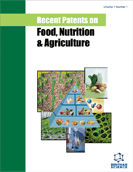Abstract
For a long time it was a common practice to add subtherapeutic amounts of antibiotics, such as tetracycline, to the feeds of livestock to promote growth and improve productivity. When antibiotic resistance in foodborne human pathogens was reported, this practice was either banned or voluntarily abandoned in many countries. The task of controlling the intestinal microflora in food animals, in the absence of antibiotics, is two-fold. First, to modulate the composition and number of commensal bacteria in the gastrointestinal tract so that it is as favorable as possible to the health and productivity of the animal. Second, to reduce asymptomatic intestinal colonization by pathogenic bacteria in the animals to lower the possibility of foodborne transmission to humans. Unfortunately, the knowledge of what constitutes a healthy, balanced intestinal microflora is still incomplete. This makes the task of favorably changing its composition difficult. However, modulation by means of natural feed supplements has been successfully practised for a number of years, the most important being probiotics, prebiotics, bacteriocins, organic acids, enzymes, bioactive phytochemicals, antimicrobial peptides, lipids and bacteriophages. A number of patents and patent applications have been published recently describing new supplements of various types. Many new compounds can therefore be expected to enter the market in the near future.
Keywords: Antimicrobials, farm animals, growth promoters, intestinal microflora, non-antibiotic feed additives
 27
27


















